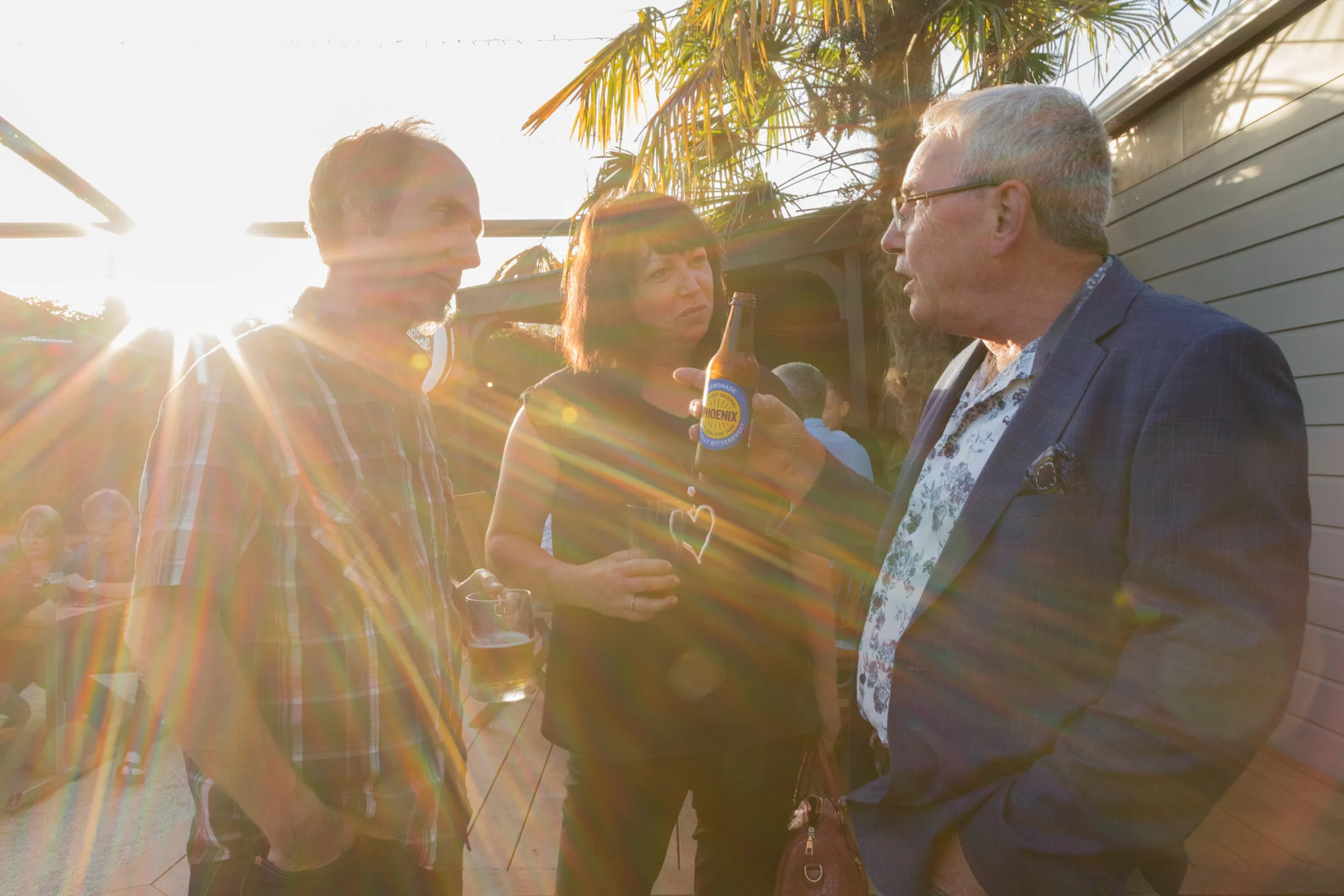
Our Story
The Riwaka Hotel has been operating for over 160 years..
Over that time, it has seen many events and people come and go, countryfolk and townspeople, fisherman and farmers, locals and visitors from all corners of the world. Today, the Riwaka Hotel’s rich history continues with new operators Carsten Buschkuehle and Angie Morris who thought joining forces to restore the hotel to its former glory was a “no brainer” . But there is so much more to discover than that……
An unpretentious breath of fresh air, the Riwaka Hotel serves up famous old fashioned charm combined with a modern mouthwatering food and beverage offering that is sure to please. Our passionate team draws inspiration from the landscapes we call home. The ingredients, flavours and textures of our food and drink reflect the changing seasons.
In 1855 James Fowler bought the land from John Stewart Mill for the sum of £175 sterling. Opened in 1857, the Riwaka Hotel was then called Travellers Rest. The hotel license originally required that all travellers were given accommodation, provided with a meal and stabling for their horses.
As early as 1843, Mr McGee’s tobacco leaf earned special mention in the first Nelson
Agricultural Show, and Pastor Heine planted 50 plants in the Upper Moutere in 1850. By the
end of the 19th century, tobacco was beginning to appear in the Riwaka district, where Māori growers were known for producing excellent crops.
Herbert Goodwin was running the Travellers Rest when fire broke out on 5 July 1906. He rebuilt it and continued until his death in 1919. His widow Bertha carried on until 1925. Jeffrey McGlashen Inglis was the next owner until1929 when John Bowers took over the lease. The license was held by the Bowers Estate till1960. It was a tiny bright red fruit that first drew entrepreneur, inventor and farmer Charles Lowe to Riwaka in 1900.
Fresh off a contract handling horses for the army during the Boer War and a pocket full of money, Lowe set up a raspberry farm. Lowe was eventually a major drive behind Motueka Fruit Grower’s Co-op Factory. His contribution towards fruit preservation and tobacco processing influenced the growth of these industries in this region. Lowe wasn't the only influence of course. Tobacco was a crop that families could grow and harvest themselves and small acreages gave good returns. WW2 saw a surge in tobacco as did the 1960's when mechanisation came in. Machines that helped growers grow more for less labour.
In 1944 J Fingland, then the current owner changed the name of the hotel to Riwaka Hotel. In 1960 the hotel was sold to H H Anders who then sold it to Jim Oliver in 1961 who leased it to Graham Drummond who operated until 1968.
In 1974 Graham Drummond sold the business to NZ Breweries which was transferred to Lion Breweries in 1980. In 1990 Riwaka Hotel was acquired by Colin & Janet Pretty. 1992-95 saw Tom & Joyce Inglis and Jack & Ann Inglis as the owners with Chris Inglis as manager. Andy Dwyer, Garry Spanger and Raewyn Chilton became the next owner in 1999. In 2007 Peter & Lyn Beauchamp became the next owners. In 2016 the hotel was put on the market for lease but remained inactive for years. John and Christine Freeman sold the hotel to Carsten Buschkuehle in 2019.
The last twenty years can be summed up in two words, tourism and hop. Tourism has taken off in the region especially in the last two decades. Kaiteriteri has always been a popular tourist destination since the 1930s but the overall region has received a lot of international exposure and attracted tourists from all over the world in recent years. Catering for the tourists especially during the Christmas holidays became a core part of the hotel and the whole district. This is when Wilsons Abel Tasman took off and then Aqua Taxis with Kelvin Goodall from Marahau and then Knapps Abel Tasman Shuttle services and the kayak companies. Although due to Covid-19 New Zealand border has been closed to international visitors, the region has seen a surge of domestic tourists in 2020.
Meanwhile, the Riwaka hop has gained popularity not just in New Zealand but overseas as well. Local hop growers also opened niche breweries which are now the pride of the region. Orchards, vineyards, forestry, horticulture, hunting and fishing in the surrounding area have made a prominent impact on the local economy along with tourism.













